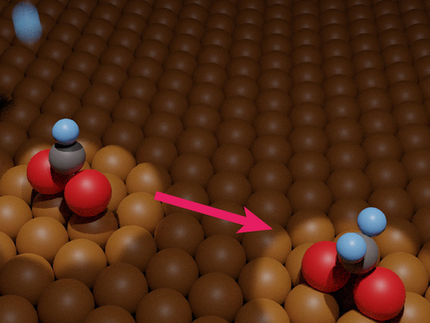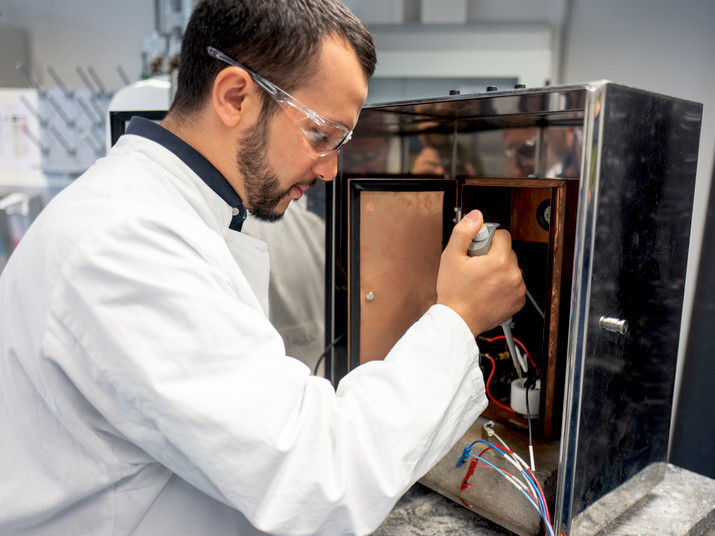BGU researchers invent green alternative to crude oil
Researchers at the Blechner Center have developed a revolutionary process to convert carbon dioxide and hydrogen into a green feed that can be refined into renewable liquid fuels
A replacement for oil has become a burning need in the 21st century. Ben-Gurion University of the Negev researchers have invented a process to make a green feed alternative for crude oil out of two of the most common substances on Earth – water and carbon dioxide, which is a greenhouse gas detrimental to the environment.
Prof. Moti Herskowitz, Prof. Miron Landau, Dr. Roxana Vidruk and the team at BGU’s Blechner Center of Industrial Catalysis and Process Development have developed a green feed that can be converted using well-established technologies into liquid fuel and delivered using existing infrastructure to gas stations. As opposed to other alternative fuel sources, such as electric cars, which require additional infrastructure, this green feed would merely replace oil as the input for refineries. Herskowitz, the Israel Cohen Chair in Chemical Engineering, is also the VP & Dean of R&D at BGU.
The process is patent pending, “and we are ready to take off,” demonstrate and commercialize it, asserts Herskowitz. Bench experiments have been conducted and scale-up should be relatively simple, he says.
“It is an extraordinary challenge to convert carbon dioxide and hydrogen to green feed,” says Herskowitz, “The technology is based on novel specially tailored catalysts and catalytic processes. Well-established, commercially available technology can be directly applied to the process developed at BGU. It is envisaged that the short-term implementation of the process will combine synthetic gas produced from various renewable and alternative sources with carbon dioxide and hydrogen. Since there are no foreseen technological barriers, the new process should become a reality within five to ten years,” he says.
Noting that Prime Minister Binyamin Netanyahu has made it clear that one of the national priorities of the State of Israel is to develop alternatives to oil, Herskowitz believes that, “As technological breakthroughs, such as carbon dioxide capture from various sources including air and water splitting, become technologically and economically feasible, this process will become the dominant technology for production of liquid fuels.”
Regarding other alternative fuels, Herskowitz maintains that his invention represents a game-changer. “The liquids that have been used over the past decade are ethanol (alcohol), biodiesel and/or blends of these fuels with conventional fuels, as will continue to be done in the foreseeable future. These alternatives are, however, far from ideal, and there is a pressing need for a game-changing approach to produce alternative drop-in liquid transportation fuels by sustainable, technologically viable and environmentally acceptable (in terms of GHG emission) processes from abundant, low-cost, renewable materials,” he says.
Organizations
Other news from the department science

Get the chemical industry in your inbox
By submitting this form you agree that LUMITOS AG will send you the newsletter(s) selected above by email. Your data will not be passed on to third parties. Your data will be stored and processed in accordance with our data protection regulations. LUMITOS may contact you by email for the purpose of advertising or market and opinion surveys. You can revoke your consent at any time without giving reasons to LUMITOS AG, Ernst-Augustin-Str. 2, 12489 Berlin, Germany or by e-mail at revoke@lumitos.com with effect for the future. In addition, each email contains a link to unsubscribe from the corresponding newsletter.





























































